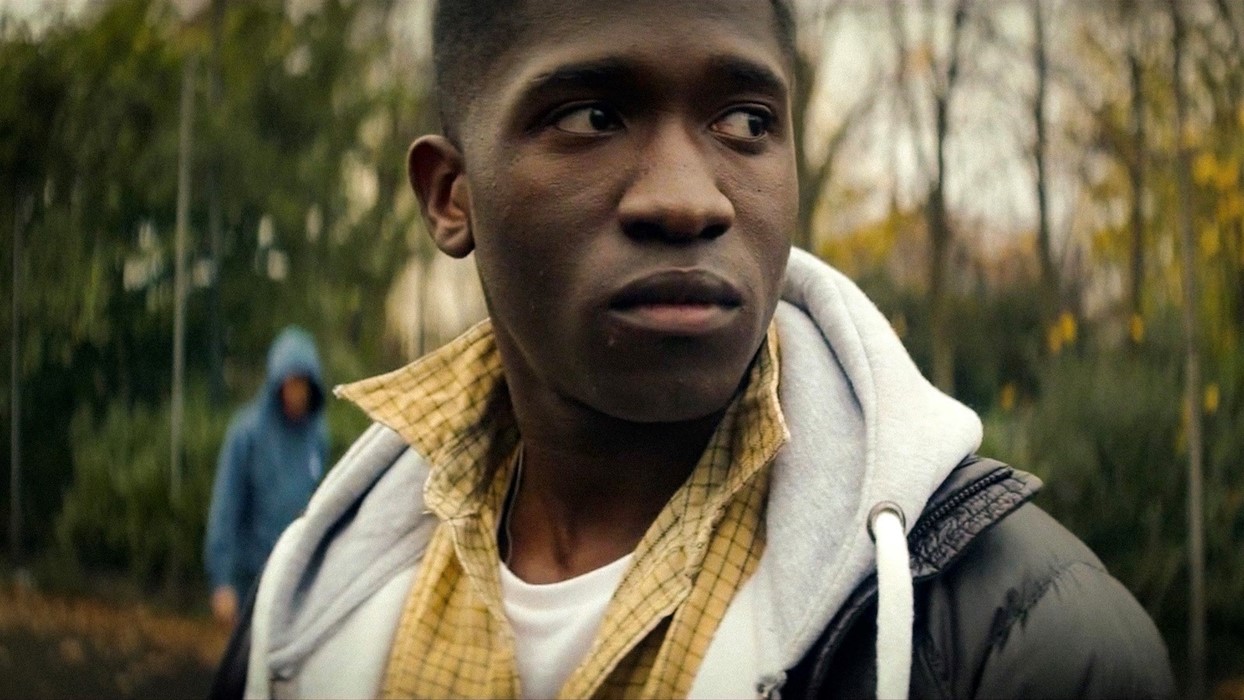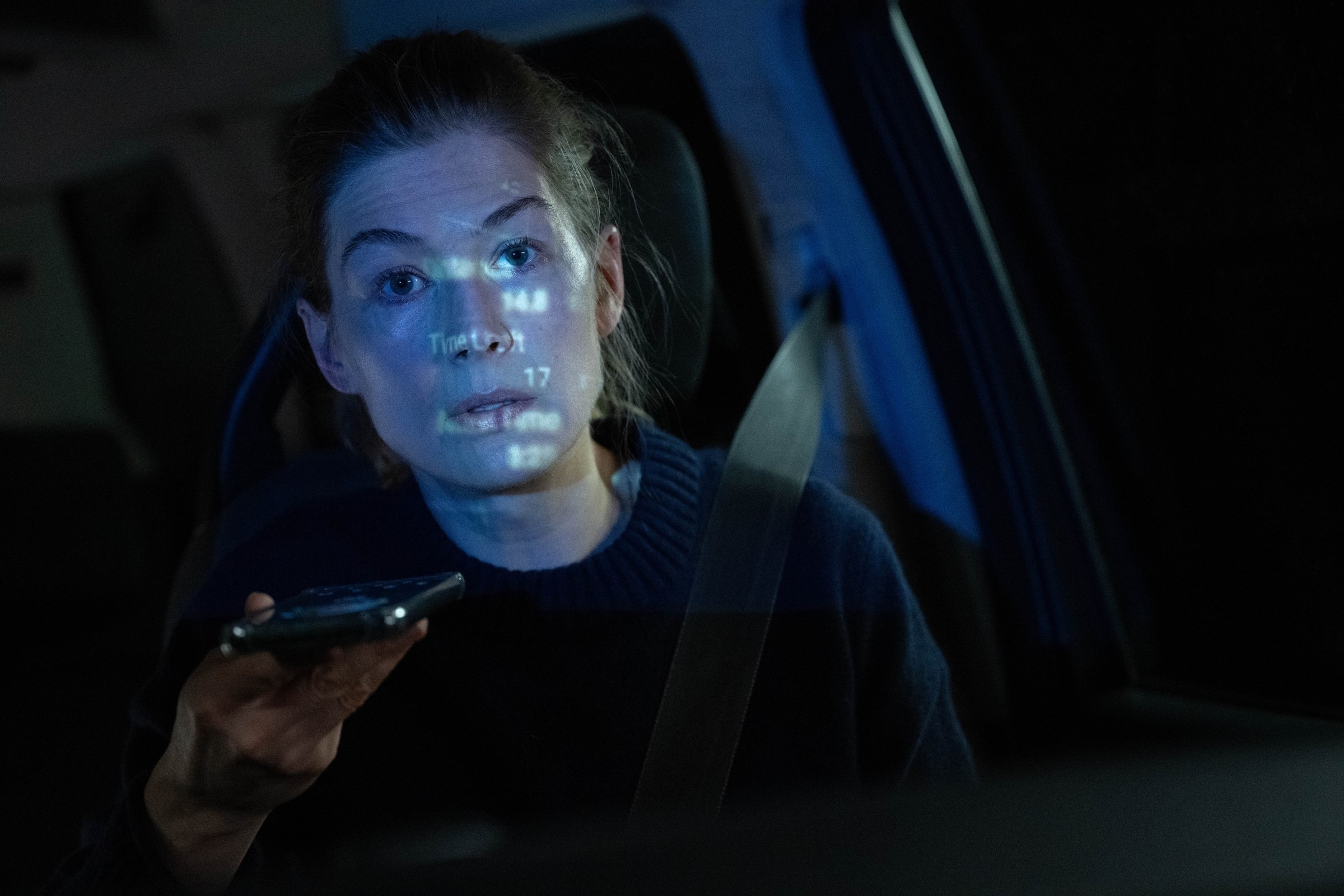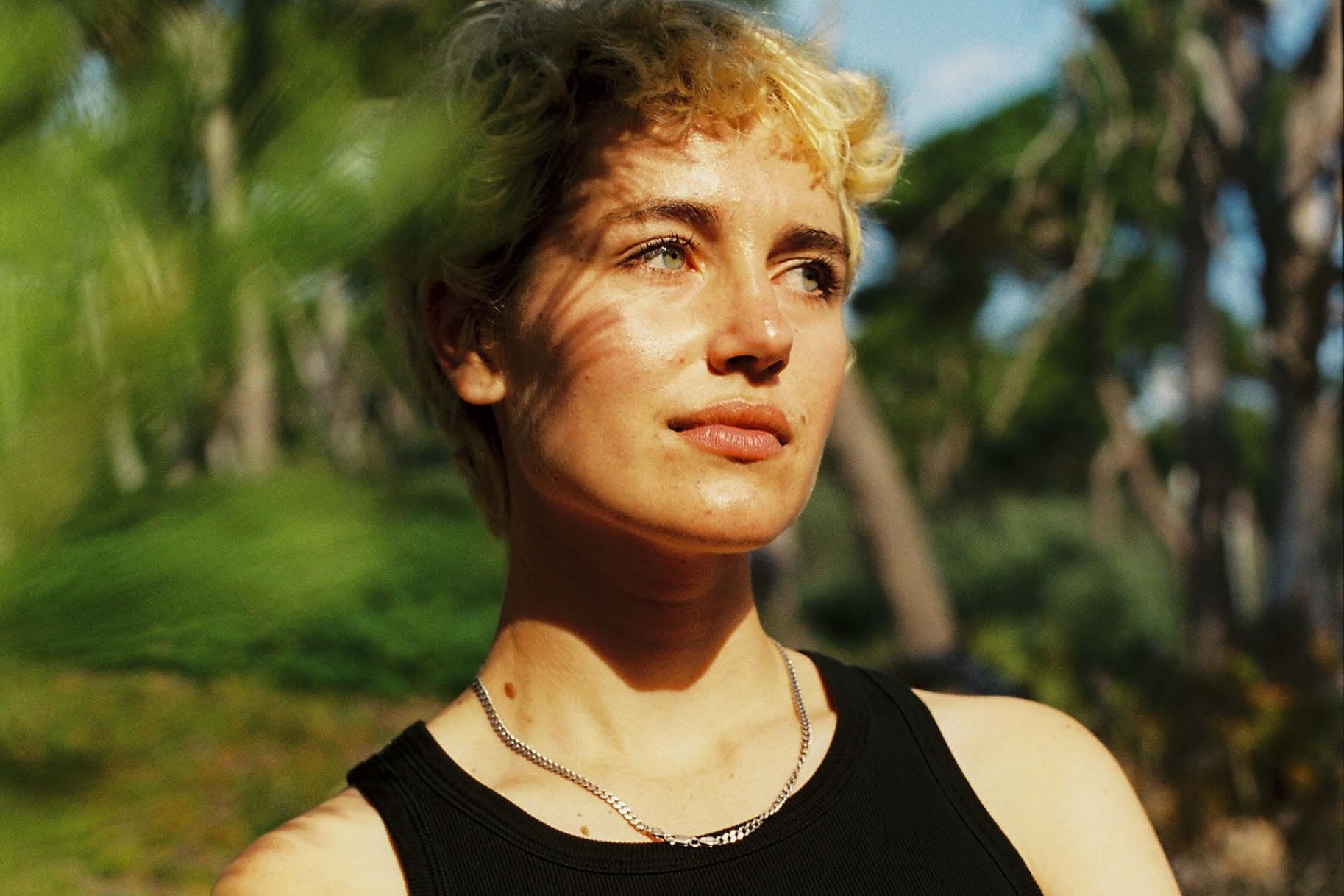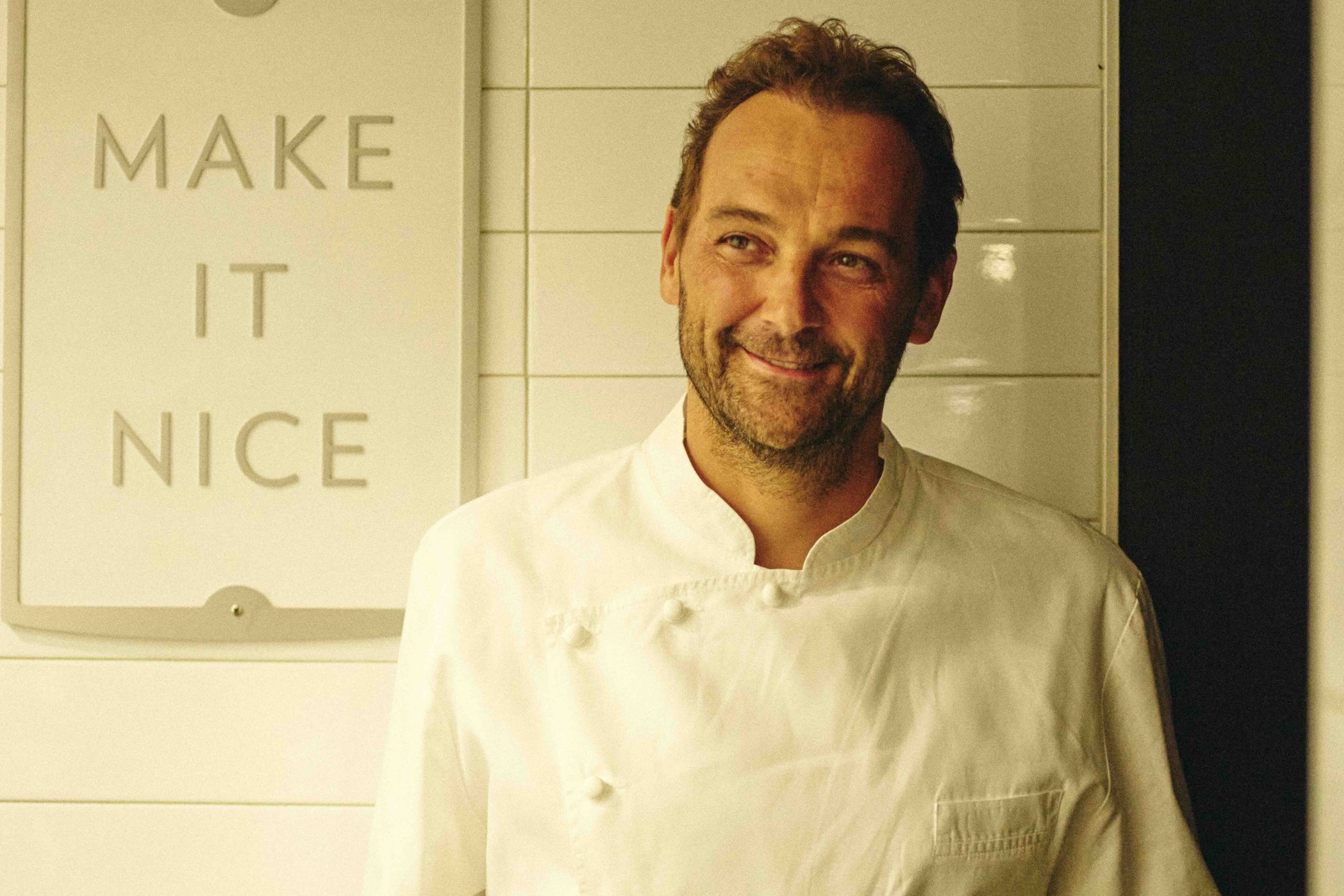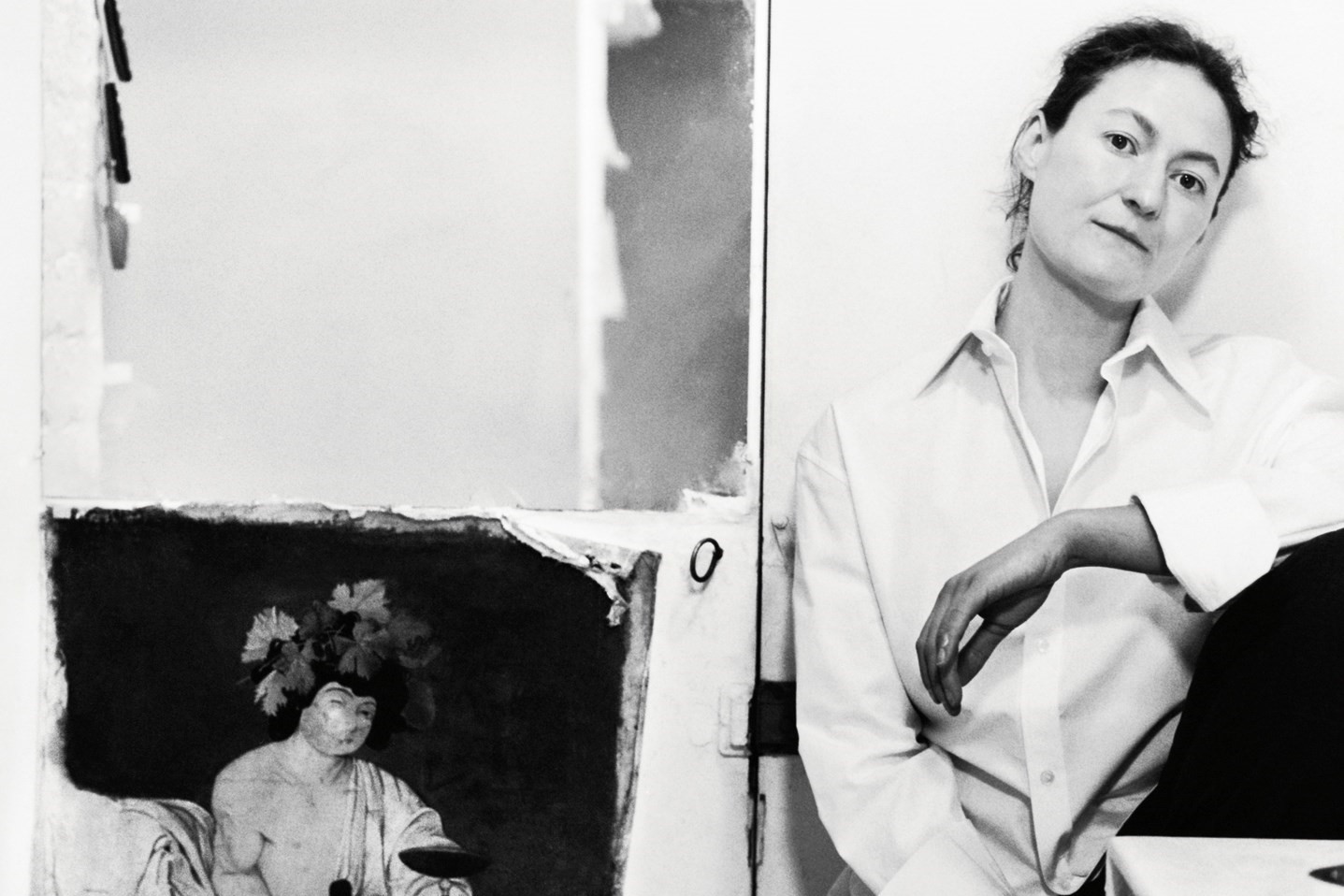“It’s about how far are people willing to go for content,” says actor Ola Orebiyi who plays the lead in A Brixton tale, a new film which looks at the uncomfortable realities of contemporary London
Ola Orebiyi is unconcerned with Instagram. “I’m the sort of person that comes on social media for a month but then leaves for five,” says the actor, who takes the lead in Bertrand Desrochers and Darragh Carey’s directorial debut, A Brixton Tale. “I want to interact with people face to face.” However when we initially meet Orebiyi’s character Benji, it’s through the lens of a handheld camera. The images are grainy and the tone is deeply voyeuristic, setting an unsettling tone that continues throughout the picture’s 76-minute run time.
Landing the role four years ago, when he was fresh out of drama school, Benji is a reserved character in a film that looks at the uncomfortable realities of contemporary London, most notably to do with race and class, but also police malpractice, consent and mental health. “His story is something I’ve seen before, with the people around me,” says Orebiyi (Limbo, Cherry) who grew up in Catford, about six kilometers from Brixton. “It was something I’d heard about from friends, and I had some similarities to Benji as well. I used to go to church around that area before I moved house.”
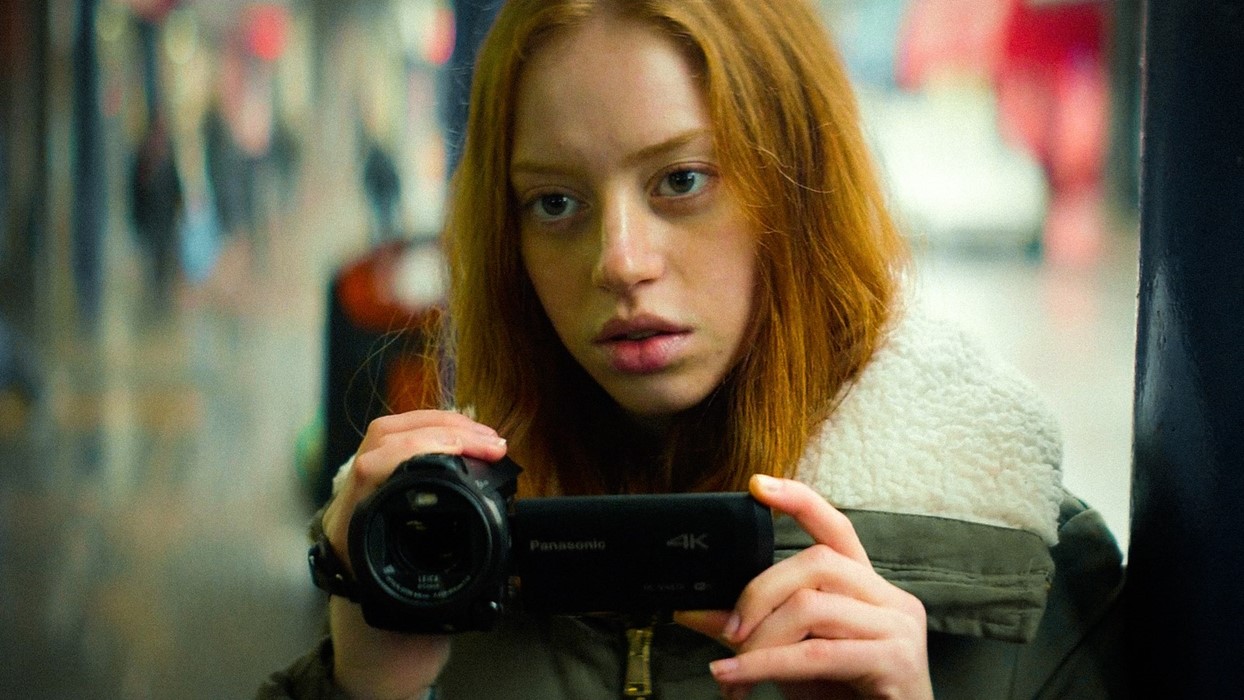
Holding the camera through which Benji is introduced is Leah (Lily Newmark): a would-be documentary maker with connections to the art world. She is the inverse of Benji in ways that go beyond mere optics, and is presented with an understanding of her privilege that straddles readings of naivety and maliciousness, and which ultimately mocks Benji’s prospects. As the film’s centerpiece, the pair’s relationship is used as a vehicle to highlight social inequalities and informs much of the film’s tension, leaving Benji’s relationship with best friend Archie (Craige Middleburg), to provide the picture’s more tender moments, such as their meeting in a ward at the film’s close. “It was the scene I auditioned with and it really stuck with me,” says Orebiyi. “After we filmed the whole room was so quiet you could hear a pin drop; it was pretty emotional.”
Directed by Desrochers and Carey, with a screenplay co-written by Cary and Rupert Baynham, the filmmakers were committed to engaging with the community that A Brixton Tale centres and brought in Dennis Gyamfi as an executive producer and Dexter Padmore, who plays Benji’s cousin Darius; both men live on the Somerleyton estate, around which the film is based. “It was a very collaborative project – I know before I joined they went into the community with their first draft,” says Orebiyi. “We were careful about the reality of this, because it has a lasting effect on people.” For his part, the actor found Benji through hanging out with Padmore. “I had the opportunity and the privilege to spend time with him; for me that was the best way to approach this – through the lens of people who have lived similar stories.”
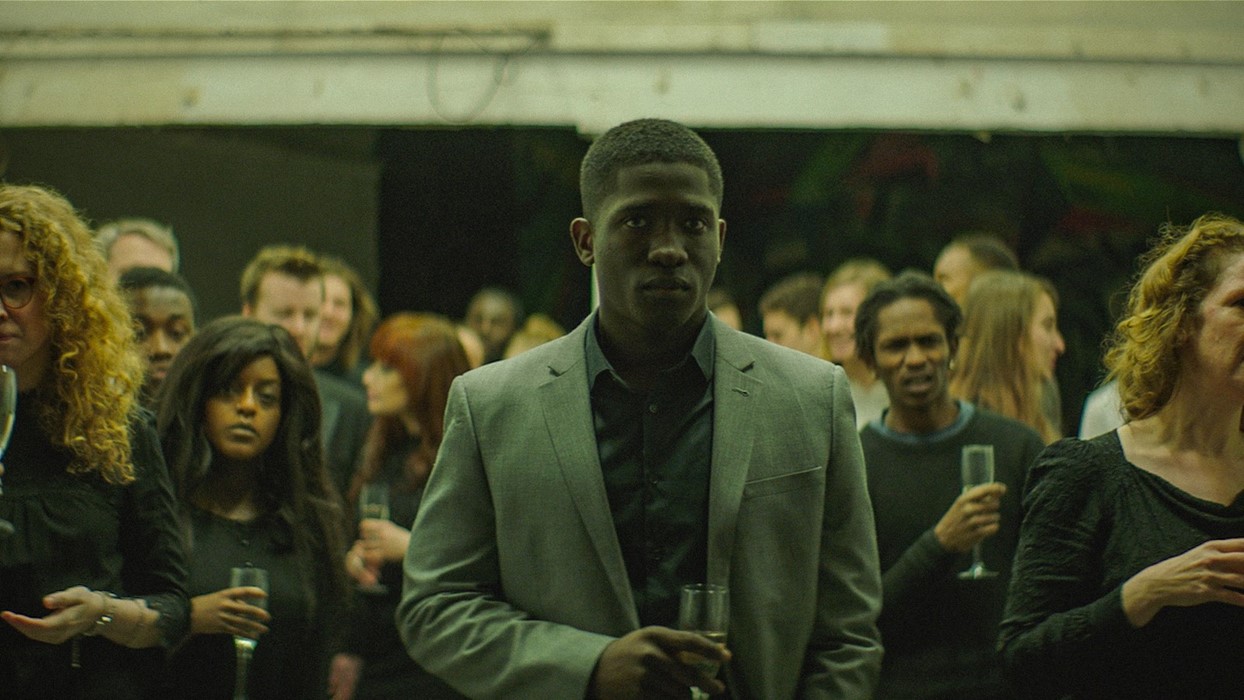
Ultimately an exploration of ethics, perhaps the film’s most pressing narrative is the notion of consent within the arena of content making and how this informs the gaze, particularly in relation to modern stories that encounter discrimination. “It’s about how far are people willing to go for content. Rupert spoke about watching a documentary on TV – these filmmakers going into an estate and getting young guys to expose themselves and tell secrets – from that, quite a few people went to prison,” says Orebiyi. “People’s lives are sensationalised or glorified for the sake of online content. It’s different now, in a way – everyone else has a camera, it’s not just documentary crews – and we all want to create the next viral dance, word, something. But how far are we willing to go for that?”
In A Brixton Tale, the answer is essentially pretty far. Sharing her camera with Benji during their early romance, when Leah’s work finally gets a screening she is absent from the edit, leaving just a grossly one-dimensional portrait of Benji. “Really gritty stuff,” enthuses a guest, as Benji’s expression falls and his mother looks on horrified. “There’s a message, in Leah’s story, for people behind the camera,” says Orebiyi, alluding to power dynamics at play in the process of filming. “Every action has a consequence. Everything that you do is basically being watched, there are cameras everywhere – camera phones, CCTV. As the person behind the camera, you have to consider that the things you’re filming involve real people and they will suffer consequences because of your need to achieve a goal without caring about people.”
A Brixton Tale is in cinemas now.
